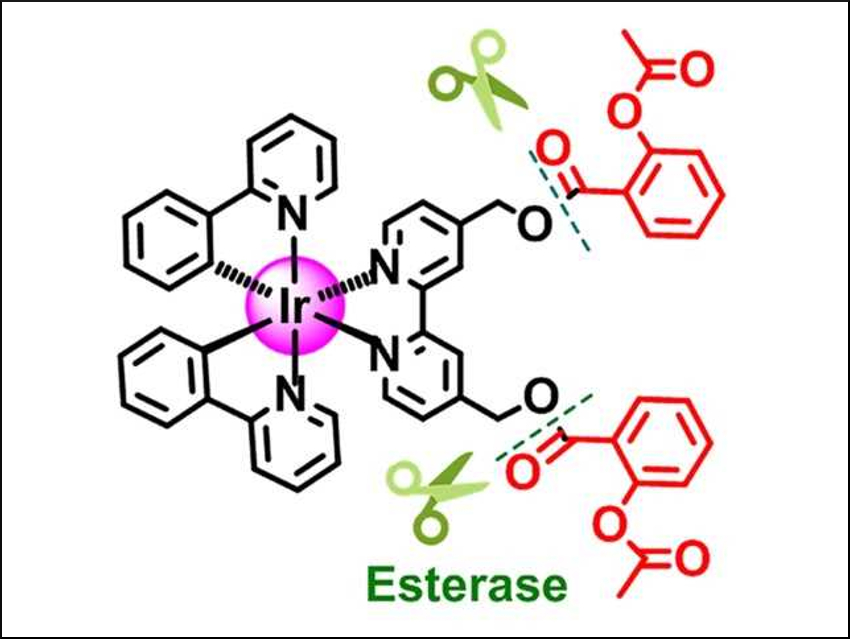Metabolic and immune disorders are important factors in the formation of tumors. However, only a limited number of studies investigated the possibility to combat cancer through the combination of mitochondria-targeting and immune-modulating properties.
Zong-Wan Mao, Sun Yat-Sen University, Guangzhou, China, and colleagues have developed cyclometalated Ir(III) complexes containing well-known anti-inflammatory agents, such as salicylic acid and aspirin (acetylsalicylic acid). The complexes are [Ir(ppy)2(L)](PF6) (ppy: 2‐phenylpyridine; L: [2,2′‐bipyridine]‐4,4′‐diylbis(methylene) bis(2‐hydroxybenzoate)) and [Ir(ppy)2(L’)](PF6) (pictured above, L’: [2,2′‐bipyridine]‐4,4′‐diylbis(methylene) bis(2‐acetoxybenzoate)). The ester bonds connecting the metal complex and the salicylic acid derivative are hydrolyzed by esterases in the body (pictured below).

The molecular conjugates can induce mitochondrial dysfunction and metabolic disorder. They also regulate the activity of immune factors. The conjugates can inhibit several events related to tumor metastasis and show potent tumor growth inhibition. Due to their strong phosphorescent emission with long lifetimes, the compounds can also be used to track the morphological changes in mitochondria.
According to the researchers, their work shows that targeting mitochondria and cancer immunity can effectively double-hit cancer cells. It also provides suggestions for the development of other metal-based anticancer agents with multiple functionalities.
- Anticancer IrIII–Aspirin Conjugates for Enhanced Metabolic Immuno-Modulation and Mitochondrial Lifetime Imaging,
Xiao-Wen Wu, Yue Zheng, Fang-Xin Wang, Jian-Jun Cao, Hang Zhang, Dong-Yang Zhang, Cai-Ping Tan, Liang-Nian Ji, Zong-Wan Mao,
Chem. Eur. J. 2019, 25, 7012–7022.
https://doi.org/10.1002/chem.201900851




